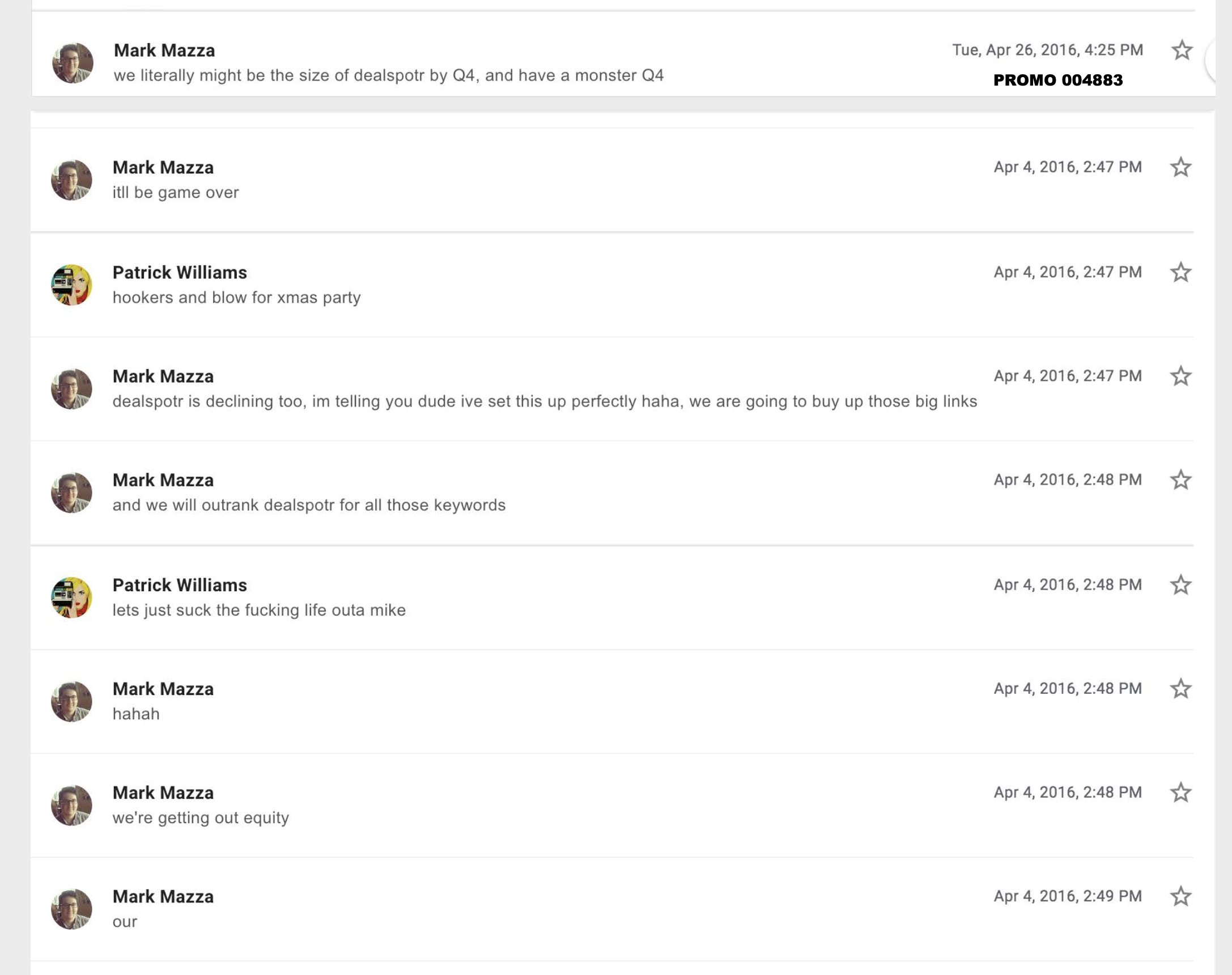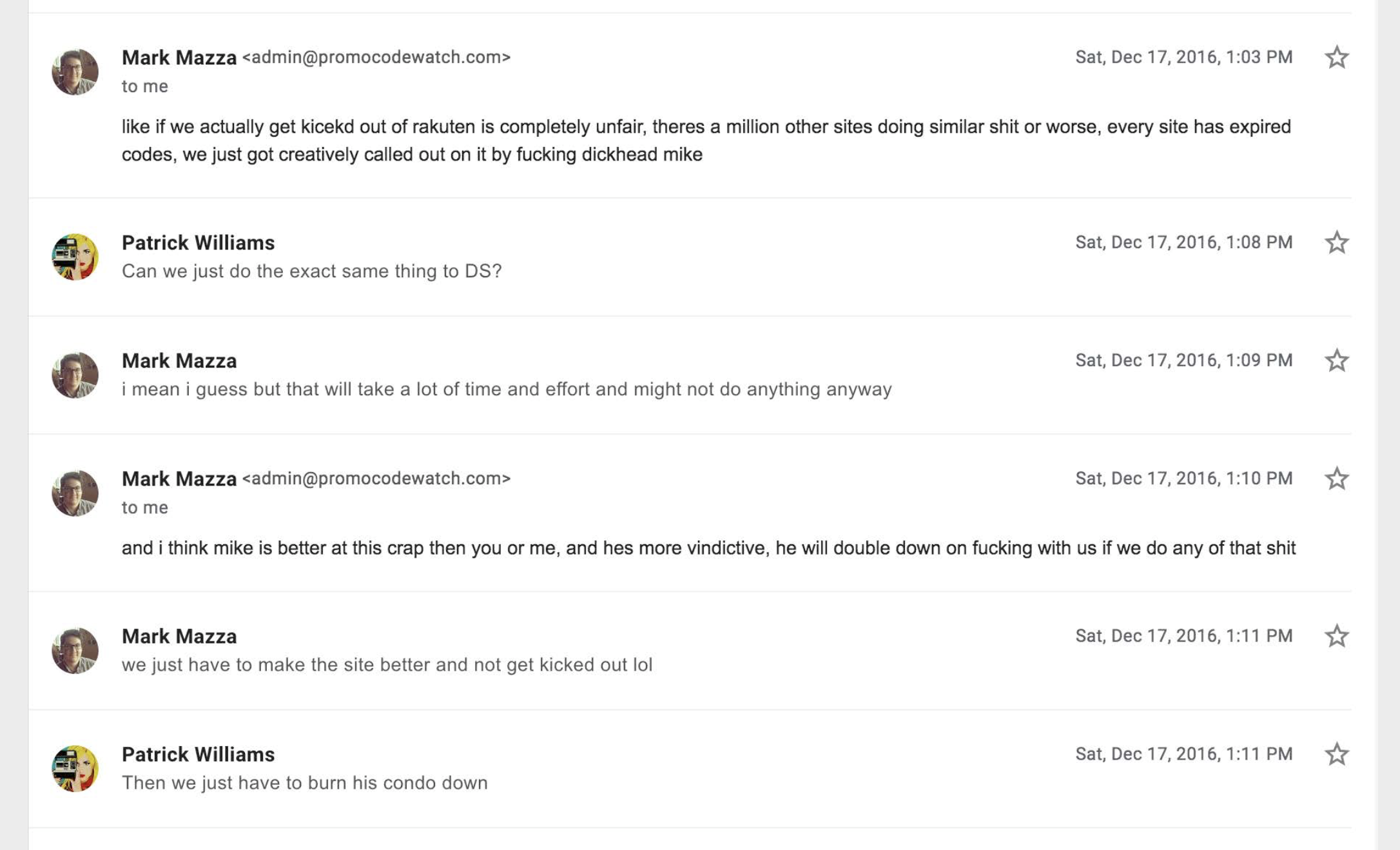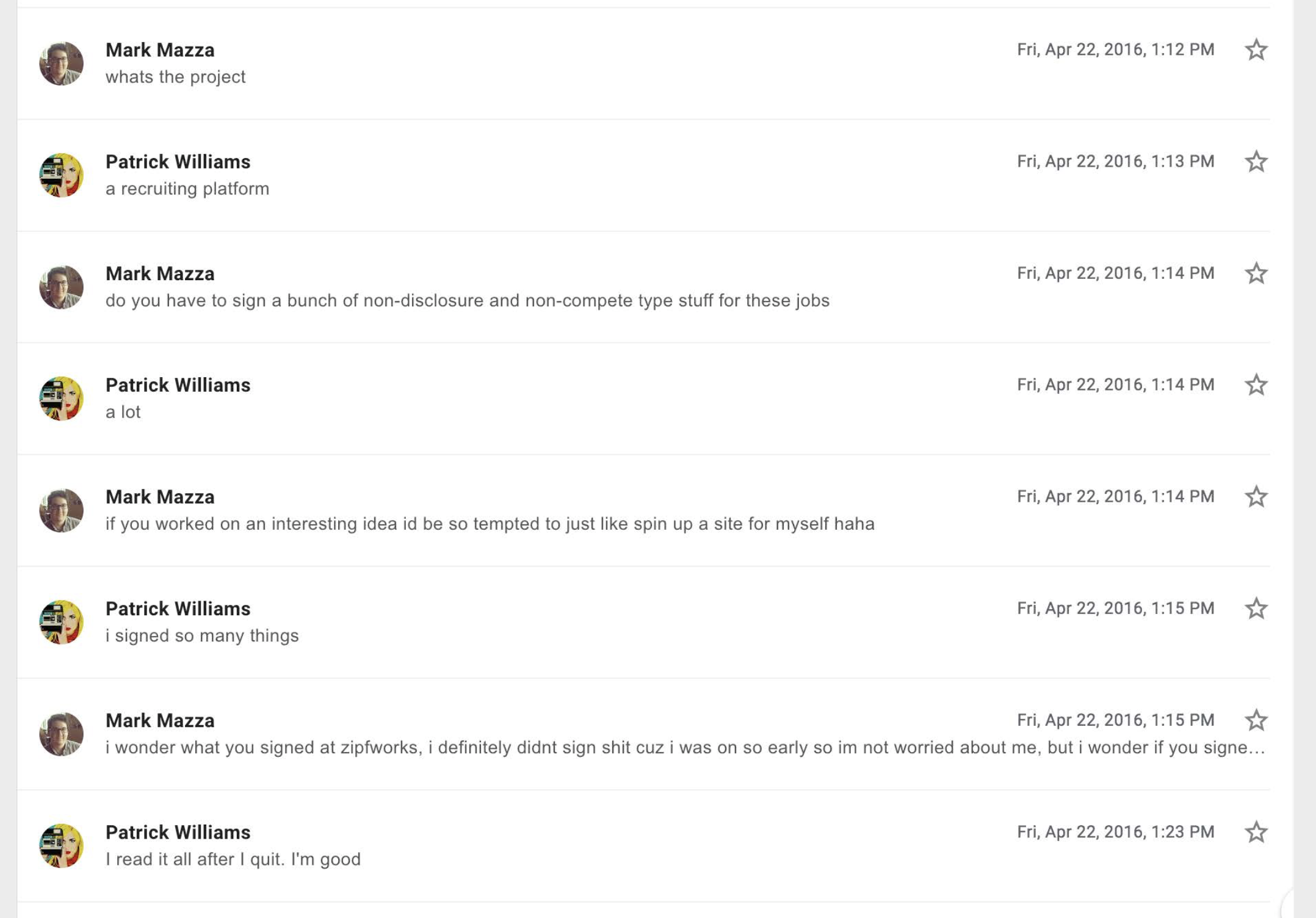Our legal action against Mark Mazza, Patrick M. Williams, and BrokeScholar.com
Former colleagues and our advertising partners have been asking about Mark Mazza (Ad Operations Manager), Patrick M. Williams (UI / UX Designer, Frontend Developer), and BrokeScholar.com and our lawsuit against them. The following provides a timeline of events and facts for the benefit of those who know us and may have questions about our ongoing litigation.
Mark Mazza and Patrick MK Williams had access to significant confidential information while working here. They stole this and used it to create an illegitimate copy of our website.
We're in litigation with BrokeScholar and its founders Mark P. Mazza and Patrick MK Williams in Los Angeles, CA. These two individuals were employed with ZipfWorks in the 2012 to 2015 timeframe, Mark Mazza in Affiliate Ad Operations and Patrick Williams as UI / UX Designer.
Mark and Patrick had access to confidential file systems while employed with ZipfWorks. While employed with us, they utilized our company messaging system to engage in one-on-one chats during which they planned to steal information from ZipfWorks and create a shell clone of our website. We've recovered these chats to utilize as evidence in our lawsuit.
We thought that by filing our litigation, this would convince Mark Mazza and Patrick Williams to cease using our trade secrets and shut down their illegitimate business. They've instead decided to continue running BrokeScholar and continue utilizing stolen information, combining this with misleading and what we see as unethical business practices to operate their website.
Due to the clearly illegal and unethical nature of their activity, as well as the overwhelming body of evidence we have amassed to document their actions, we're publicizing what Mark and Patrick did as a matter of historical record.
Patrick M. Williams is concealing his employment with us from his online profiles
Patrick MK Williams was employed with ZipfWorks in Santa Monica / Los Angeles from March 20, 2015 through November 2015. Here's his employment letter:
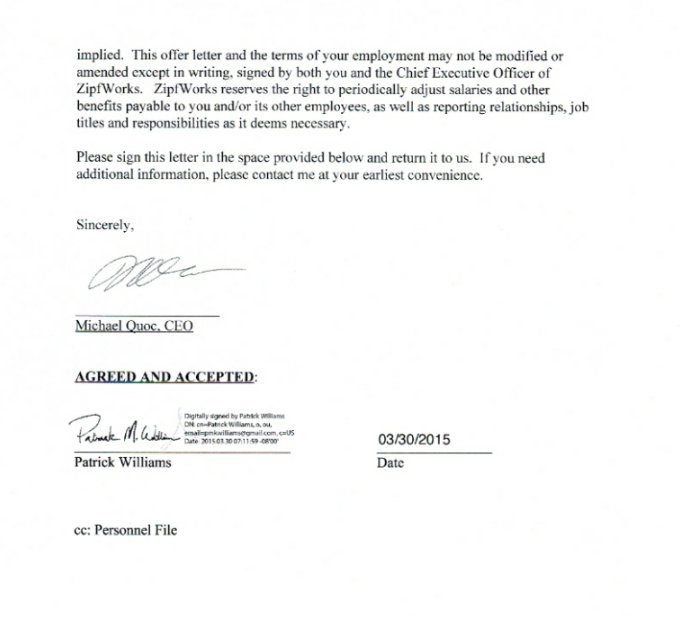
Here's a photo of Patrick M. Williams (UX Designer) at a ZipfWorks team dinner, sitting with Mark Mazza (Affiliate Operations).

However, Patrick has since erased ZipfWorks from his employment history. We believe that given that he stole confidential information from us and used that to create his new company (BrokeScholar.com in Los Angeles, CA), he has decided to conceal his relation to both companies in the public sphere.
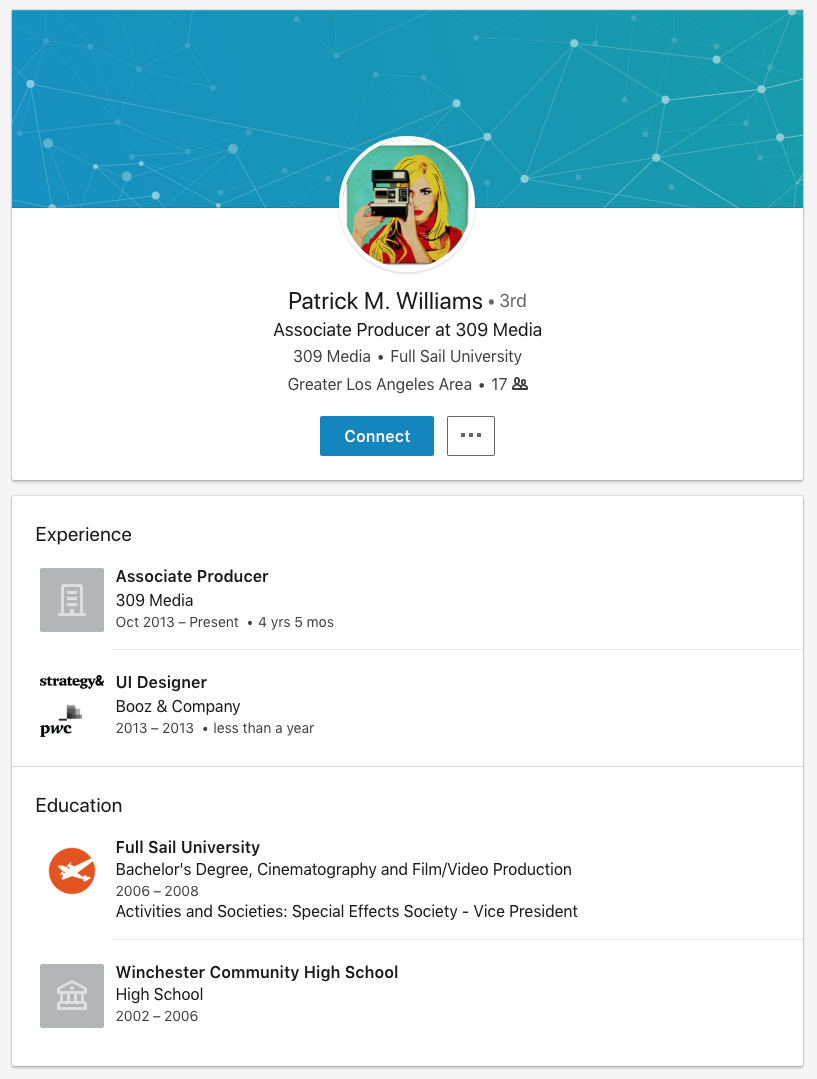
Here's the resume Patrick MK Williams (UI Designer) submitted to us with his job application for our UI / UX Designer position in March 2015. It's also notable that 309 Media was nowhere to be found on this resume, despite that Patrick is currently claiming that he's been continuously employed there as an Associate Producer since 2013:
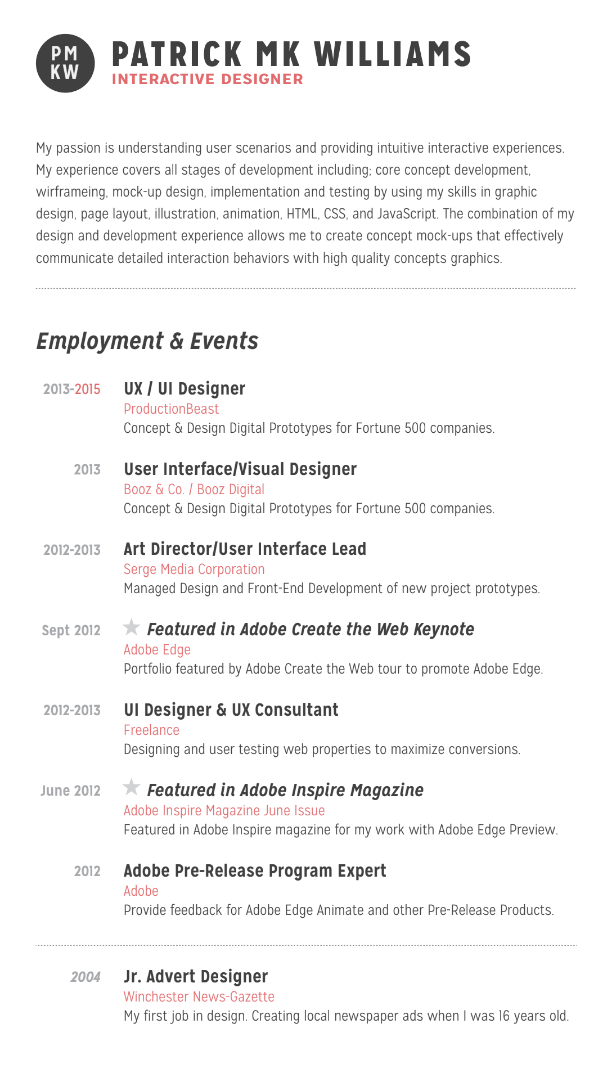
Patrick M. Williams appears to be re-writing his employment history to hide the fact that he has founded an illegal and illegitimate business.
Mark and Patrick conspired to create a competitor website while they were employed with us, using our own chat systems
During the course of our investigation into BrokeScholar, Patrick M.K. Williams (UI / UX Designer and Frontend Engineer), and Mark P. Mazza (Affiliate Ads Manager) we discovered chats between them on our corporate messaging system.
In these chats, Patrick and Mark discuss conspiring to collaborate on various illegitimate or "spammy" businesses.

Mark and Patrick discuss wanting to "go blackhat" so bad, and "throwing morals out the window."
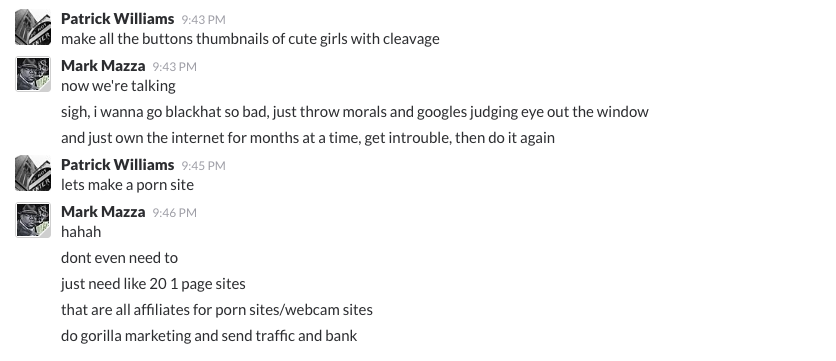
After leaving ZipfWorks, Mark and Patrick discussed ZipfWorks extensively via chat
During the course of our litigation, we've come into possession of chat and text messaging transcripts between Mark Mazza and Patrick Williams. In these chats, Mark and Patrick discuss ZipfWorks, our websites, and our founder and senior partners extensively.
We're publicizing a selection of these chats to show how they clearly intended not only to steal confidential information from ZipfWorks, they also planned to harm our business and wanted to undermine our financial stability and well-being.
Patrick Williams expresses feelings of malice towards ZipfWorks' founder
Patrick discusses how he hates seeing images of his former boss's children on his social networking feeds, because he's "taking food out their mouths." He also mentions that he's "taking their daddy's car."
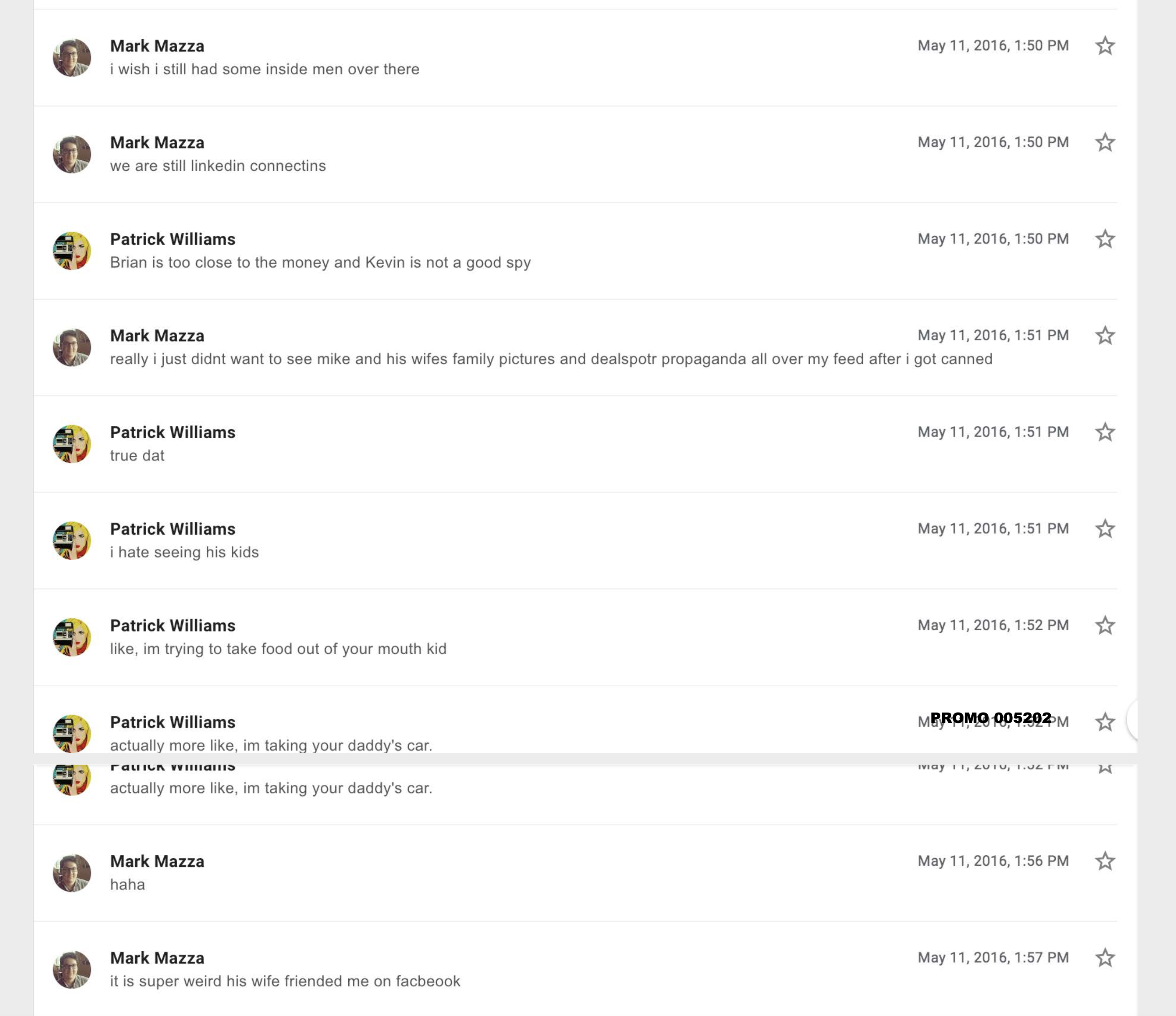
In this chat, Patrick Williams and Mark Mazza discuss abusing their position of trust with their former employer, as well as the possibility of being sued for their actions. Patrick mentions acts of vandalism against our founder.
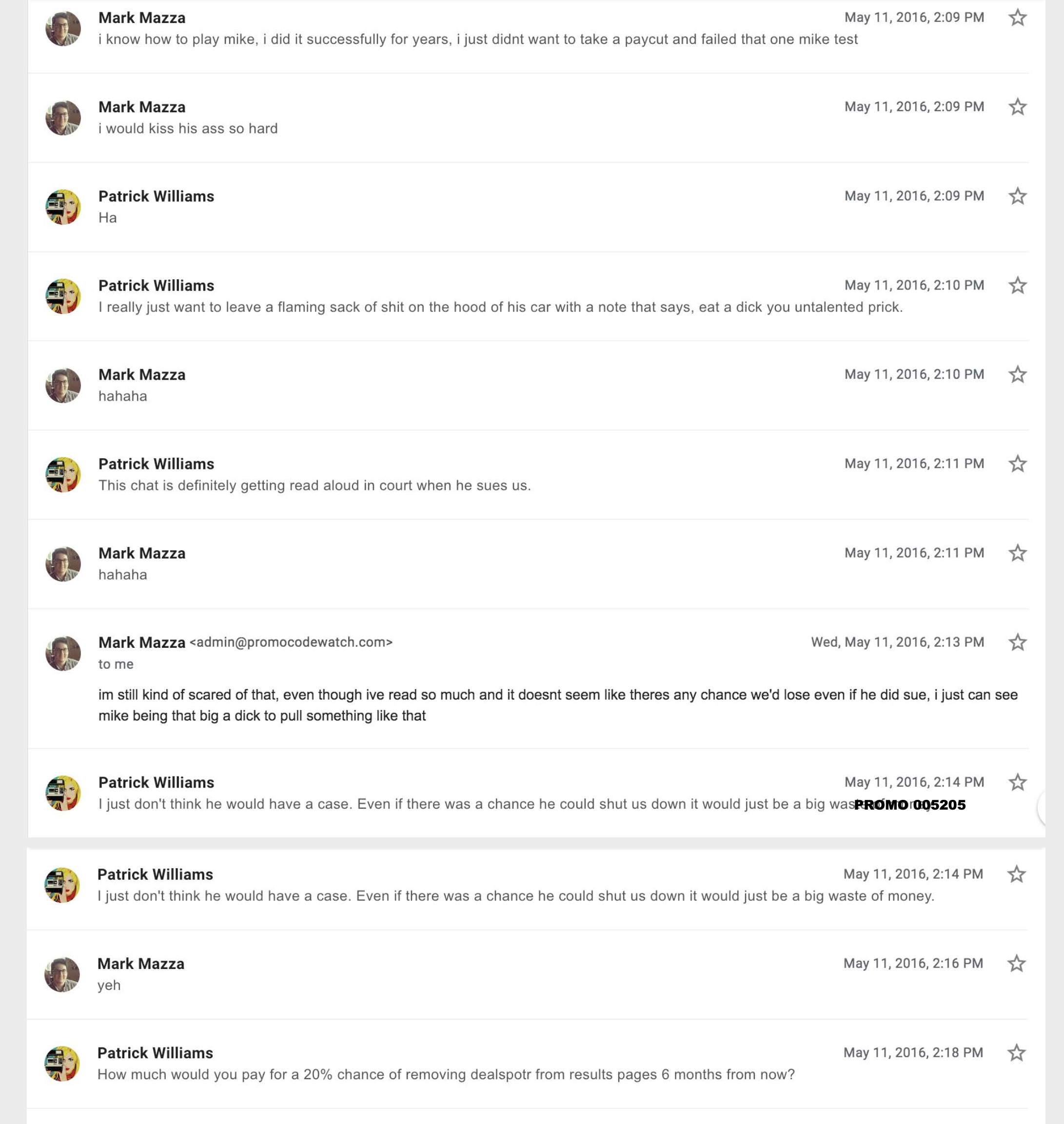
Patrick Williams discusses "sucking the life" out of our founders
Mark and Patrick discuss how they are utilizing confidential information to target and attack our business, leading to a decline in our revenues ("sucking the life" out of our founder) while benefiting their revenues.
Patrick M. Williams makes reference to acts of physical harm to ZipfWorks' founder and family
As our efforts to communicate with the various advertising networks were leading to BrokeScholar being banned from a growing number of networks, Patrick says he might have to "burn his condo down" in reference to our founder.
Patrick Williams and Mark Mazza were concerned about their legal exposure due to having signed confidentiality agreements with ZipfWorks
Mark Mazza was under a misguided impression that he had not signed a confidentiality agreement with ZipfWorks. He thought this gave him protection while running BrokeScholar / PromoCodeWatch. He was concerned, however, that Patrick Williams (UI/UX Designer) had signed a confidentiality agreement, which he apparently found problematic. In reality, both individuals had signed confidentiality agreements prohibiting them from utilizing non-public information from ZipfWorks.
Mark also expresses his viewpoint that, if he were also doing contract work like Patrick was doing, he would be tempted to steal confidential ideas from his clients to launch competitors.
Patrick and Mark were concerned about being penalized by Google for using improper marketing tactics
Patrick MK Williams and Mark Mazza were aware that if Google reviewed their website, they would likely receive a manual action penalty which would negatively impact their business.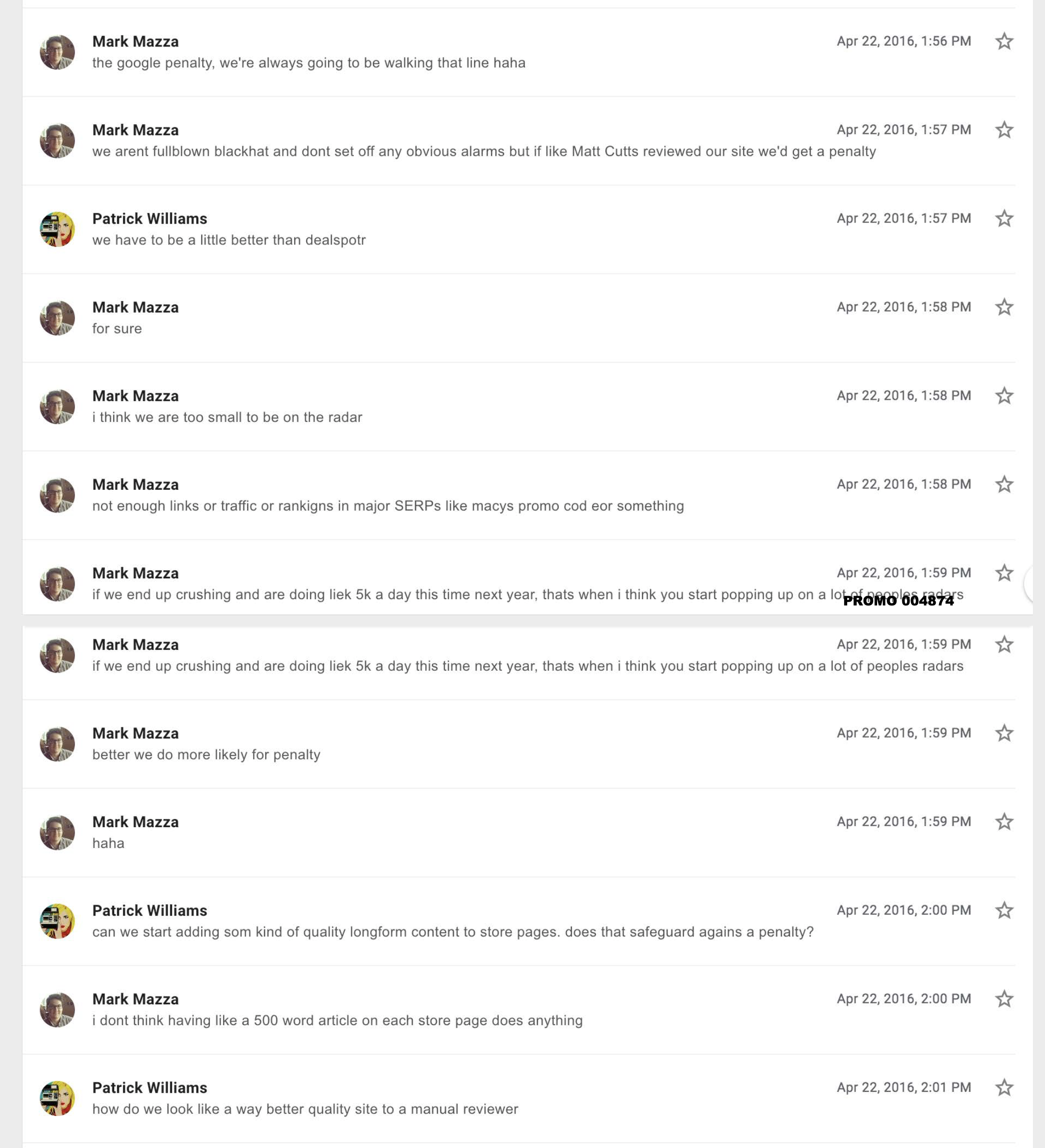
Patrick and Mark were becoming concerned that they were starting to gain some visibility, which might increase their exposure to a penalty.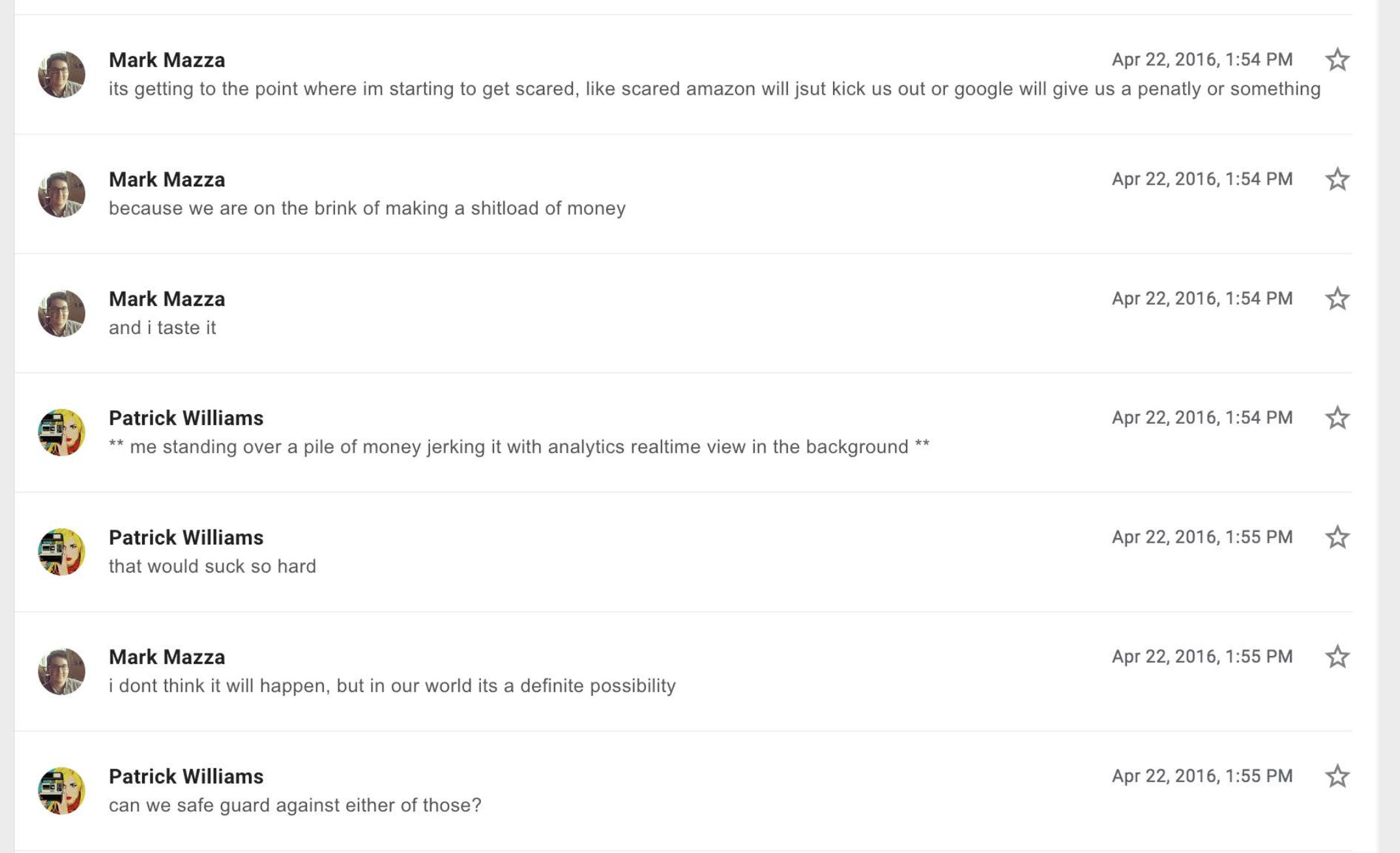
Patrick and Mark discussed ways to make their site appear to look more legitimate
The founders discuss how they could modify their website to make it appear to be more legitimate.
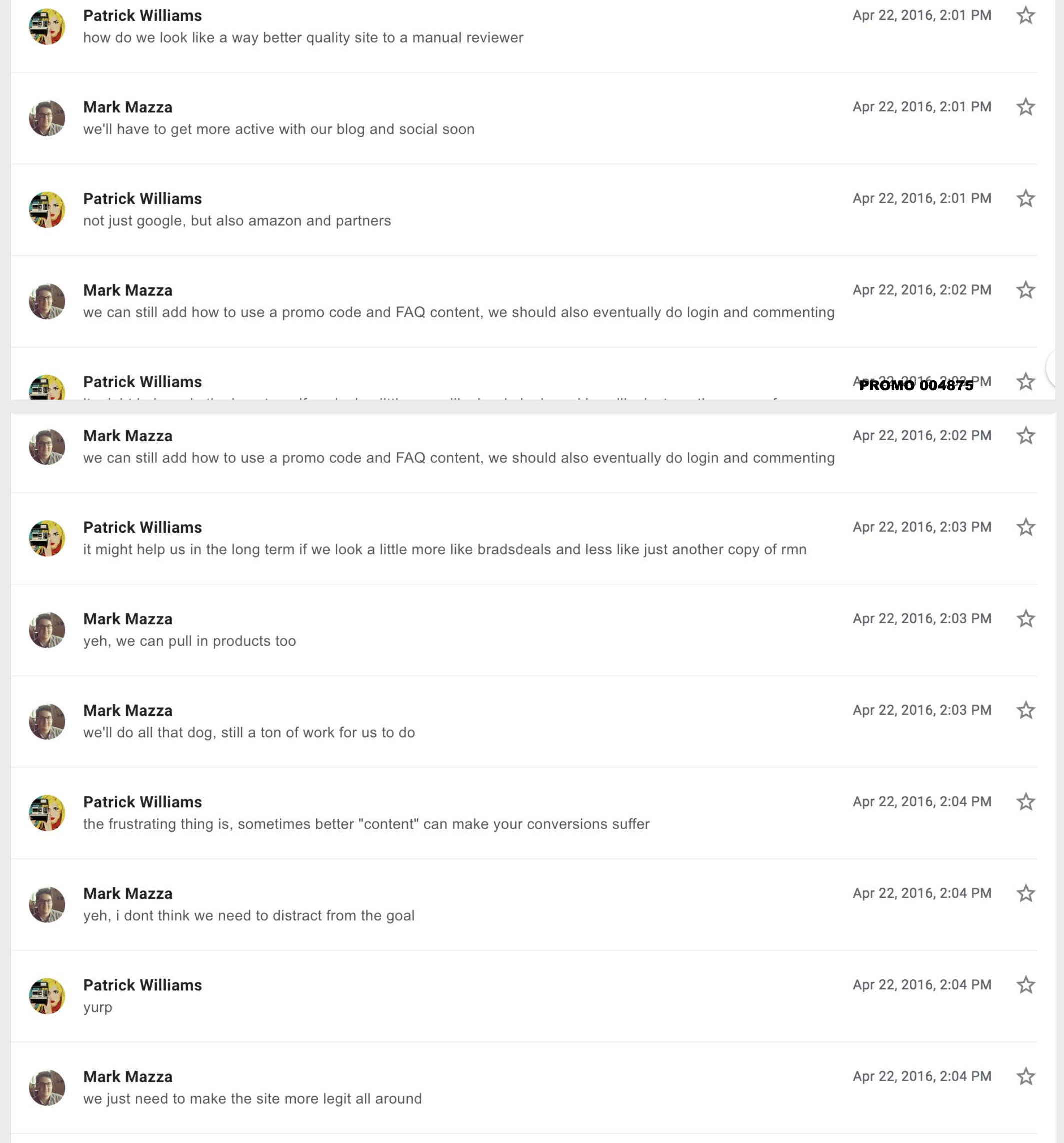
Why this article?
We've decided to go public about our legal action against Mark Mazza, Patrick Williams, and BrokeScholar.com. We're providing this article to provide a timeline of events and the facts about Mark and Patrick's activities which we view as fraudulent.
We're also writing this as a forewarning to prospective partners, employees, employers, and advertising partners of Mark Mazza, Patrick MK Williams or BrokeScholar. We believe these individuals defrauded us, their former employer, by stealing trade secrets and proprietary and confidential company information and materials and then combined this information with fraudulent business practices to compete unfairly against us and our industry peers in the marketplace.
If you are a current or former employee of ZipfWorks, we are using this document to shed light on the pending legal action which is a matter of public record. Please note that, as a matter of company policy, we respect the privacy of our employees. The conversations and information we've documented here were procured from these individual's computers and company accounts only as a result of this ongoing litigation.
Our lawsuit against Mark Mazza, Patrick Williams, and BrokeScholar
In February 2017, we filed a formal complaint against BrokeScholar and its founders. You can view a copy of the full complaint here.
Here's why we're suing them.
We allege that these two individuals left our company, took with them confidential information with them about how we built, operated, and marketed our website to create what we call a "shell" clone of our website within 2 weeks of their departure from our company.
We call their website a "shell" copy of ours, because it only resembles our website on a superficial level, in that it mimics the site structure, page structure, and concept of our site.
A large portion of the difficulty and resource allocation of running a real coupon website lies in creating, editorializing and maintaining content. In the online coupons industry this means adding, editing, and updating tens of thousands of coupons and coupon codes every day.
In our case, we utilize crowdsourcing whereby nearly 200,000 community members edit and update our deals, and we employ a staff of 30 full-time employees to moderate and manage this community. In other cases, companies like RetailMeNot and Coupons.com employs hundreds of employees to maintain high editorial standards. Contrast this with Brokescholar.com / PromoCodeWatch, which has just 3 employees.
The online coupons industry faces a problem in it is that it is relatively easy for any company to setup a site that visually resembles RetailMeNot.com, Coupons.com or our site, but then populate that site with fake coupons and coupon codes. Then, given the importance of search engines as a source of traffic for coupon sites (as this is how most people search for them), these "shell" site operators can invest in schemes to boost and manipulate their search engine rankings and derive profits, because the search engines have yet to develop a way determine that these shell sites don't actually have real coupons.
In fact, displaying a large number of fake coupons can actually have the effect of boosting a site's rankings on search engines like Google, because if visitors are clicking to view and trying out numerous coupon codes, in a search engine's eyes, this may indicate that there is something of interest on this site (a concept known as dwell time).
This is a challenging issue to address in the coupons industry, and is among the driving reasons why, for consumers, so many coupon codes online seem to be expired or simply don't work. Currently, there is no solution for this - Google and other search engines have not figured out a way to differentiate a good coupon site from a fake coupon site.
However, in this case, we can expose the inner workings of at least one such "shell" coupon site. We're familiar with the creators of BrokeScholar.com / PromoCodeWatch.com (they are our former employees) and we've obtained evidence of their intentions to create a fraudulent "blackhat" coupon site after leaving our company. They discussed this matter extensively with each other while employed with us on our internal chat systems, and during the course of our litigation, we've recovered these chats as evidence. The founders, Mark Mazza and Patrick M. Williams, discussed leaving ZipfWorks to "throw morals and Google's judging eye out the window" and setup their own "blackhat" version of our coupon website. They even went as far as to attempt to poach our own engineers to help them with their fraudulent project, as our screenshots show.
We further conducted a detailed analysis of their website, brokescholar.com / promocodewatch.com, over an extended period of time and documented with hundreds of screenshots, how they posted primarily false and expired coupon codes and utilized sophisticated UI cloaking techniques to mislead their site visitors into thinking these were real coupons, verified by editors. In fact, 93% of the coupon codes we examined on Promocodewatch.com were invalid or expired. Contrast with a site like RetailMeNot, which in our latest study had only 24% of expired or invalid codes displayed, or our site at 22% expired / invalid.
Perhaps most damningly, BrokeScholar.com / Promocodewatch.com displayed promo codes for e-commerce stores that explicitly do not offer promo codes as a matter of store policy, such as 23andme (see screenshots). Not only did Brokescholar.com / Promocodewatch.com display codes for these stores, they featured them prominently with their signature "verified" green checkmark label, and continuously changed their expiration dates each night with what appeared to be an automated script. These techniques appear to be a coordinated effort by BrokeScholar / PromoCodeWatch to deceive their own users and search engines into thinking their website contained superior content than mainstream coupon websites like RetailMeNot (which correctly displayed no coupon codes for 23andme).
This article serves to document the details of how Mark Mazza and Patrick MK Williams operate their website BrokeScholar.com / PromoCodeWatch.com. You can read a copy of our formal complaint filed in the state of California here.
Update on May 9, 2018: We've completed an updated analysis of the fake coupon codes displayed by BrokeScholar / PromoCodeWatch which shows that they are continuing to display fake and expired codes across their site. In this new study, we observed them actually increasing the levels at which they display promo codes for brands that do not support support promo codes on their site at all.
BrokeScholar / PromoCodeWatch displays fake content and uses UI cloaking to mislead visitors
By far the most expensive and resource-intensive part of running an online coupon site is content development - namely keeping coupons verified and up-to-date for tens of thousands of stores. For example, BrokeScholar / PromoCodeWatch promotes pages for roughly 48,000 stores:

To check those 48,000 stores to ensure their coupons were up-to-date would require significant resources and manpower. For example, mainstream coupon sites such as RetailMeNot, Offers.com, and Coupons.com have dozens to hundreds of employees dedicated to keeping coupons current. In our case we use crowdsourcing and an active community of 200,000 user members to test, verify, and edit thousands of coupons each day.
In 2016, we saw evidence that rather than posting valid coupons, BrokeScholar / PromoCodeWatch was mass-posting fake coupons, so we conducted an in-depth study with screenshots to analyze their website during December 2016 through February 2017. We found that, of the 126 coupon codes we tested on their site across 31 stores, only 7% provided a valid discount.
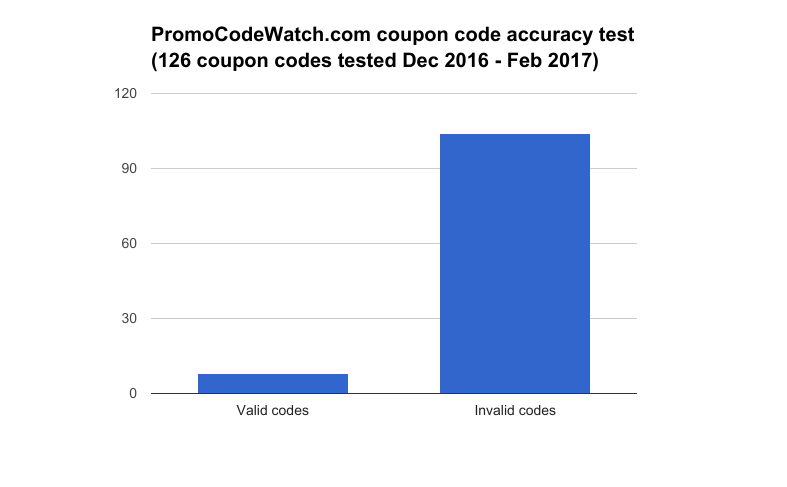
Furthermore, we discovered that Mark Mazza and Patrick Williams apparently developed and ran a programmatic scheme to deceive users on their very own website. Each day, BrokeScholar / PromoCodeWatch executed a site-wide programmatic script which mass-updated expiration dates across almost all of their site's coupons in one fell swoop. This script modified the expiration dates of their coupons site-wide, moving them back by a few days at a time. This script ran even on expired, invalid, and outright fake coupons on their site.
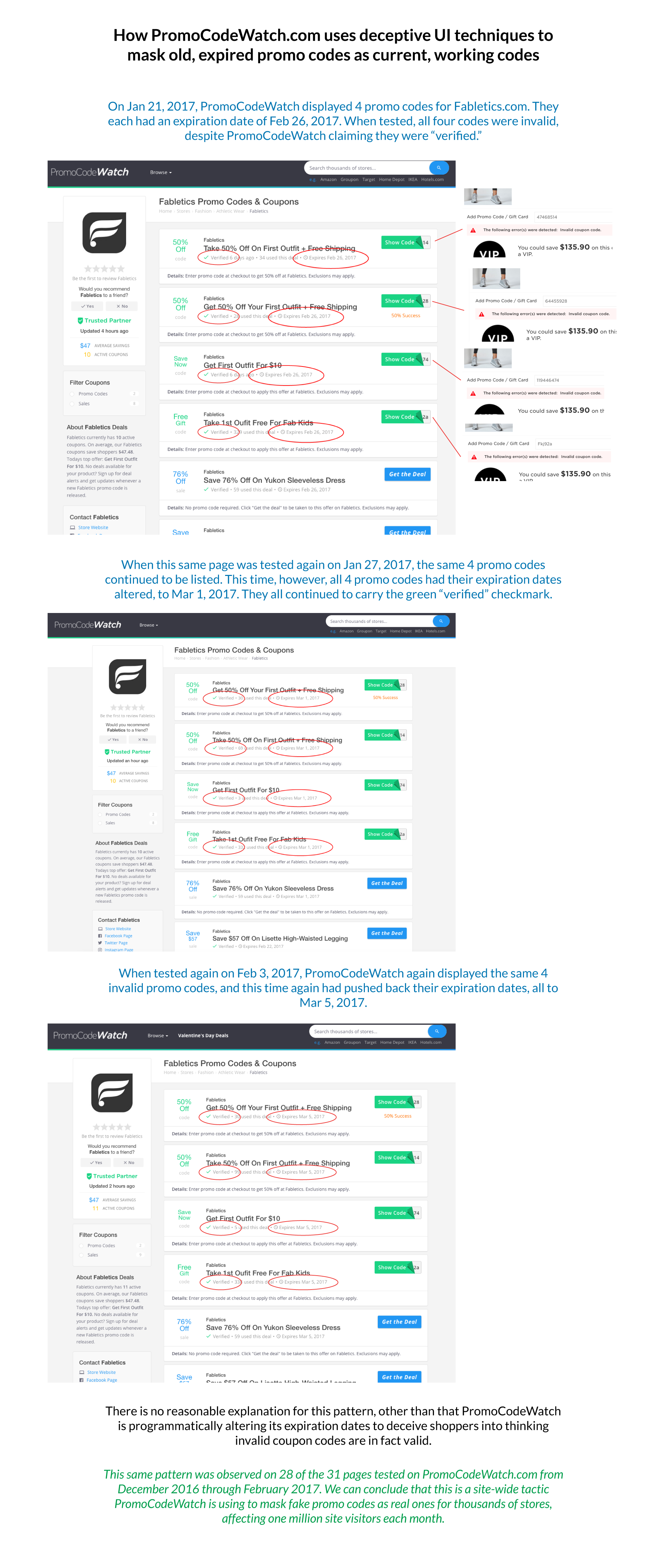
This script had the effect of making all of their coupons (even fake or long-expired ones) appear to be current and valid, just expiring soon on a specific day in the very near future. While every coupon site will have instances of expired coupons, these tend to be isolated cases rather than widespread patterns. Further, no ethical site operator would proactively update their expired coupons to make them appear to be active.
We can only imagine that BrokeScholar / PromoCodeWatch's tactics caused thousands of visitors to click on these coupons and go through the trouble of trying to redeem them, only to find, after wasted time and effort, that such coupon code was already expired or otherwise invalid.
For Mark and Patrick, however, this was probably a way to generate revenues from thousands of coupon pages which they did not bother to update.
In chats between himself and Patrick Williams, Mark Mazza has demonstrated his familiarity with the notion that continuing to display coupon codes after their expiration date can result in clicks (and revenues), even expressing sarcastic disdain towards our internal policy of actively removing such expired codes.

In a further scheme to deceive their own site visitors, BrokeScholar / PromoCodeWatch also displayed a green "verified" checkmark label on the coupons displayed on their site. This is a recognized symbol in the industry to used to indicate trust, that the website operator had tested the coupon and is claiming that the coupon works. BrokeScholar / PromoCodeWatch prominently displayed this green checkmark, even for coupons that were invalid, fake, or expired for over one year.

BrokeScholar / PromoCodeWatch's intent to mislead users became even more clear to us when we observed that they posted promo codes for 23andMe, a retailer that explicitly does not offer promo codes as a matter of store policy. We emailed 23andMe to reconfirm this fact, which they did:

Not only does BrokeScholar.com / PromoCodeWatch.com display 3 promo codes for 23andMe, they display them as "verified" at the top of their page, and they continuously alter the expiration dates of these promo codes so that they never expire.
Here's BrokeScholar / PromoCodeWatch's page for 23andMe taken on Jan 21, 2017: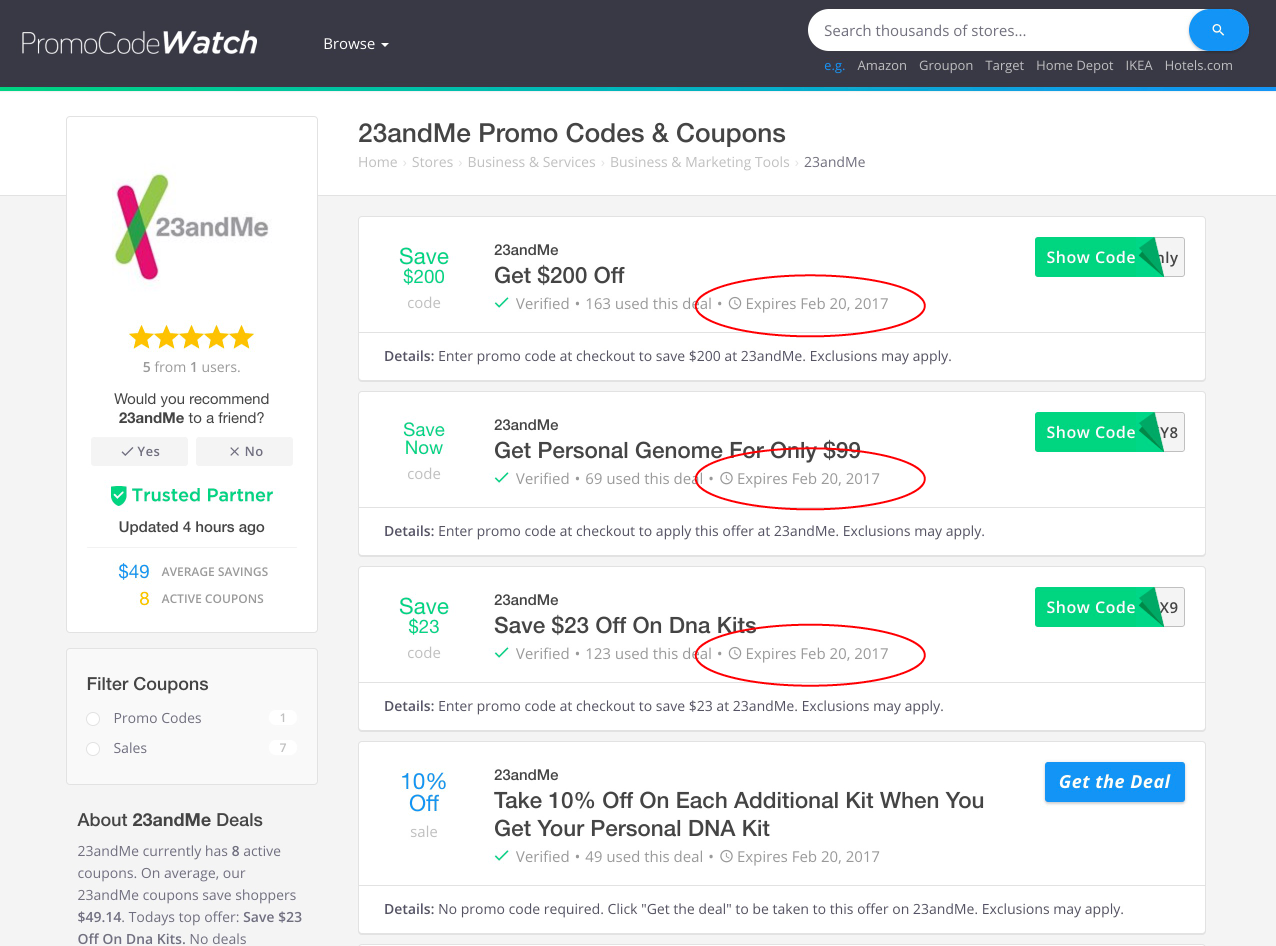
Here's the same page a few days later on Jan 29, 2017. All 3 fake codes are still there (re-ordered, but they are the same codes) - see how all the expiration dates have been altered: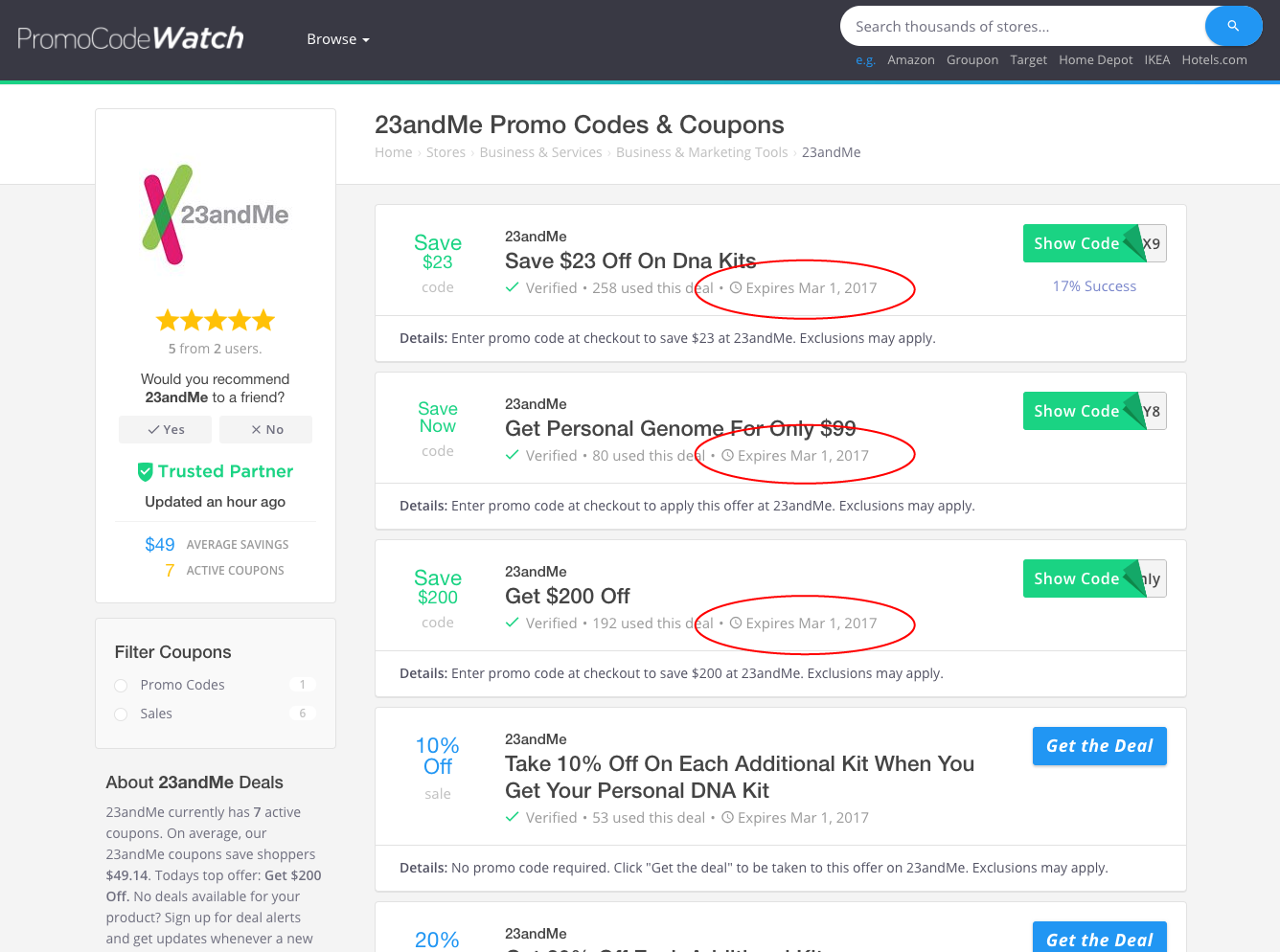
And again a few days later on Feb 3, 2017, see how the expiration dates for these 3 fake codes have been altered once again: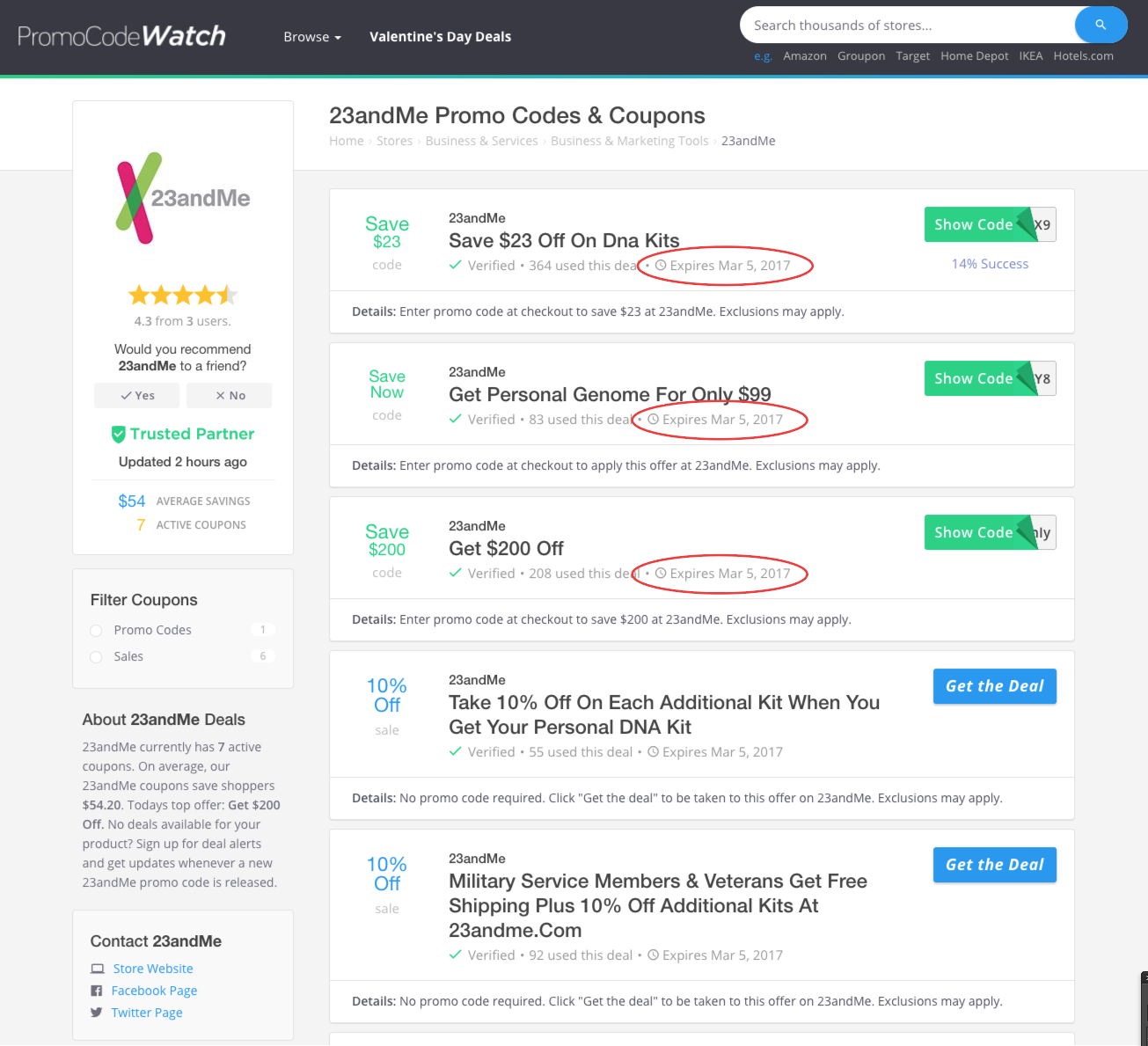
This appears to us to be an explicit a practice designed to deceive shoppers into clicking on these codes and boosting BrokeScholar revenues. You can read the the full study here.
Taken together, this evidence suggests that Mark and Patrick utilized two unethical business practices to run their own website. First, they skipped the investment in the required infrastructure, technology, and manpower to operate a valid coupon website with real content in the form of real, verified coupons. Second, they went one step further and took proactive measures to actively deceive their own site visitors into thinking their fake content was real.
More details on Mark P. Mazza
Mark Paul Mazza started to work for us on February 7, 2013, as a junior data entry assistant.
Mark was a hard worker and was eager to learn. Mark has an affable, disarming demeanor - he likes to talk sports and gossip about the office - and he's good about fostering relationships with people around him. I liked Mark personally, and over time I entrusted him with a lot of responsibility. He eventually learned enough to manage our affiliate advertising accounts, helped manage our overseas outsourcing team, and assisted with a range of business operations tasks.
Mark Mazza came in with little relevant experience (he was a data entry clerk at SodaStream and did sales cold calling while at Organic Online). We paid him $15 per hour to perform data entry tasks.
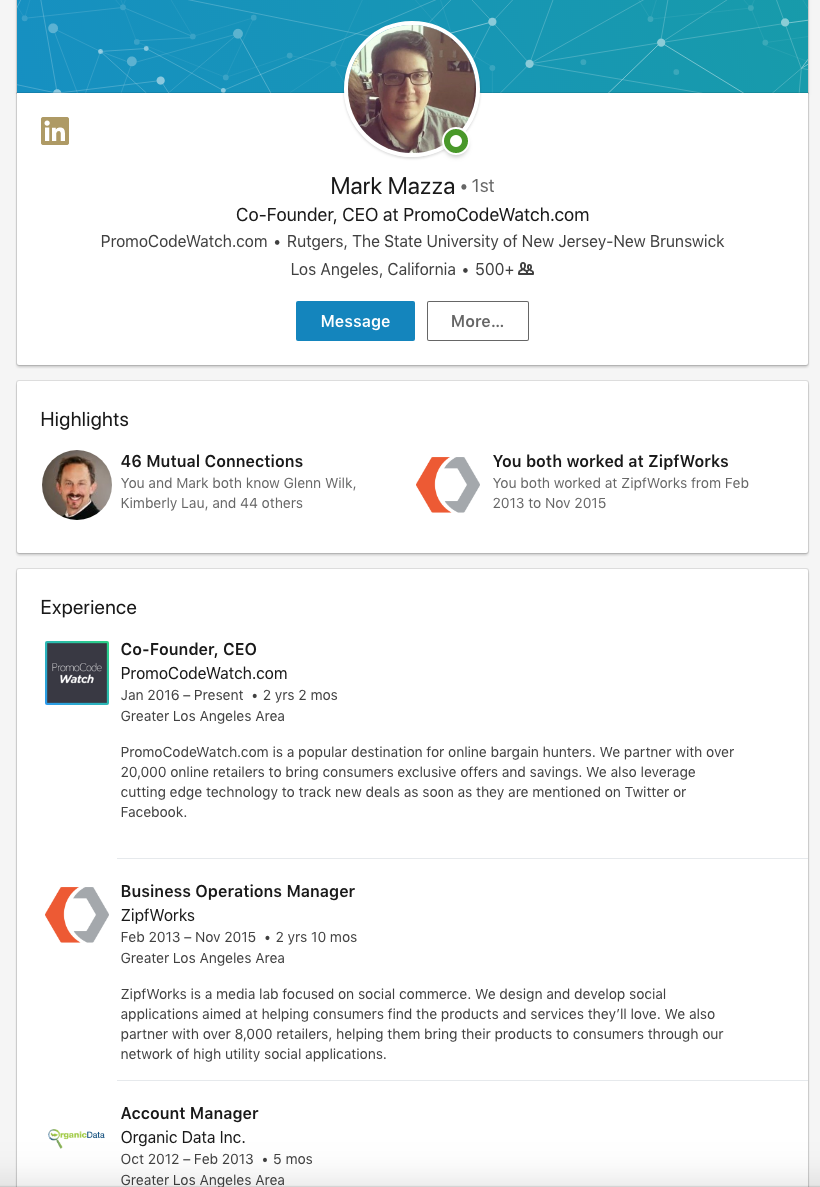
Over two and a half years working for me, Mark Mazza grew under my mentorship from an entry-level hourly employee to a junior manager. Because I saw that he put in effort on the job, I paid him well, he eventually came to earn six figures and earned significant equity grants under me, which is far above market rate for his skillset. I had Mark talk to our advertisers, I sent him to affiliate marketing conferences, I even entrusted Mark with a company credit card. Generally, I treated Mark well.
Mark and I did weekly one-on-one meetings, during which I gave him extensive mentorship in running an online business, including building a website, the basics of search engine optimization, affiliate advertising, and how to recruit and run an outsourcing team.
I invested a lot of time and energy into Mark's development, Mark really did come to ZipfWorks with no discernible skills in online business, and his career in affiliate marketing got its foothold under my direct mentorship over two and a half years.

During his tenure with us, however, I started to notice some signs of trouble with Mark. Through conversations with members of my team, and through documentation brought to my attention, I came to learn that Mark sometimes misused his position of trust with me.
I learned of incidents when Mark shared privileged information (financial information, or sensitive HR and personnel matters) about the business with other employees who were not authorized to hear such information.
In two instances, internal messages were brought to our attention in which Mark solicited software engineers on our team to work on side projects with him, going so far as to hint that he might launch a competing product in the affiliate marketing space (in one incident he propositioned an engineer to join him to build a "shady affiliate" site.

Mark also misused his company credit card as well as his access to our corporate PayPal account, charging late night weekend car rides on his AMEX, and purchasing personal meals for himself without authorization. The very day Mark received this corporate AMEX, he immediately discussed using it to fund his online poker account via Bitcoin with a fellow employee:

Mark and Patrick would also discuss the topic of abusing Mark's company credit card. While the following instance does not in itself prove any specific wrongdoing, it serves to illustrate Mark and Patrick's general character and attitude towards the company:

We observed a range of additional behavioral issues, including playing online poker while at work (and encouraging other employees to join him in doing so) - this chat occurred on a workday in the office around 1pm:

Mark was terminated in October 2015. This was a tough decision for me, as I had invested a lot in him. Mark knew my wife and kids, I even recall him buying little gifts for my oldest daughter. There was a connection there, and I made many excuses to keep Mark on my team despite multiple warning signs that he had violated my trust.
The final straw came when, during a layoff period as we were cutting costs and cutting staff, I asked Mark if he would be willing to take a pay cut for a couple months until our business ramped back up. Other key employees had agreed to this. Mark outright refused, and instead suggested that we layoff Daniel, his one direct report. He told me he could take up the slack and that the company would be fine without Daniel. This incident, combined with prior warning signs, solidified my decision to let go of Mark.
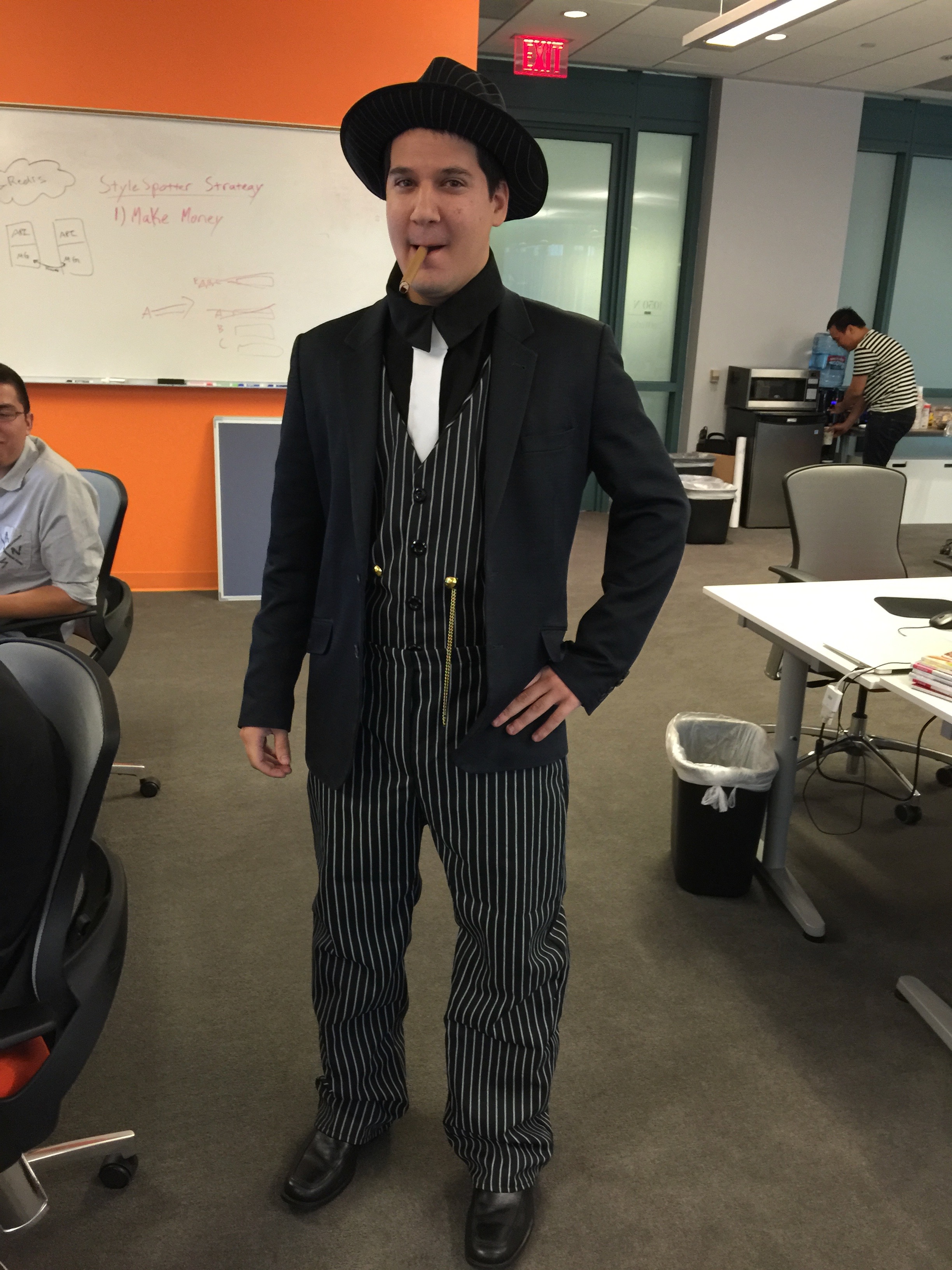
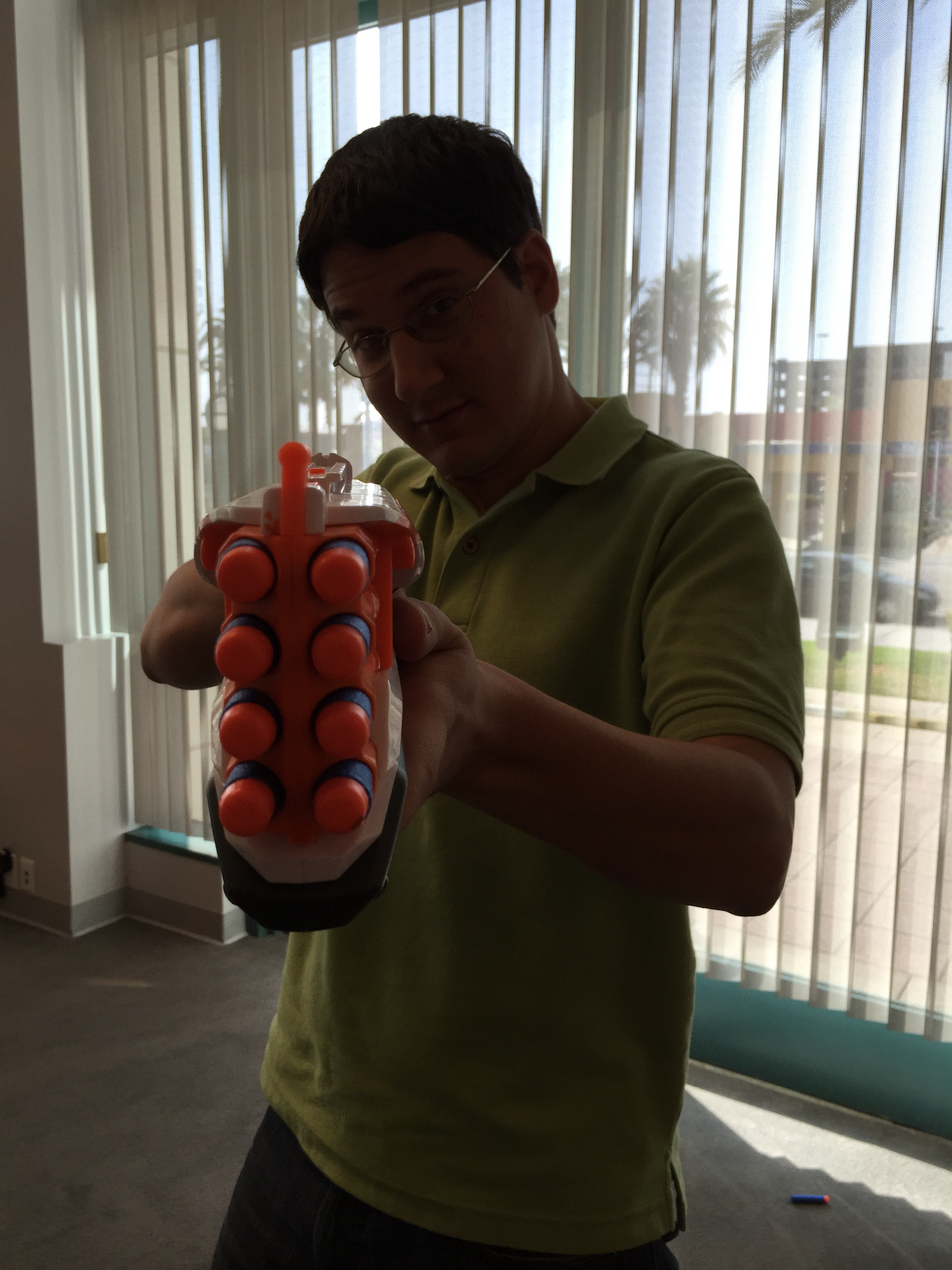
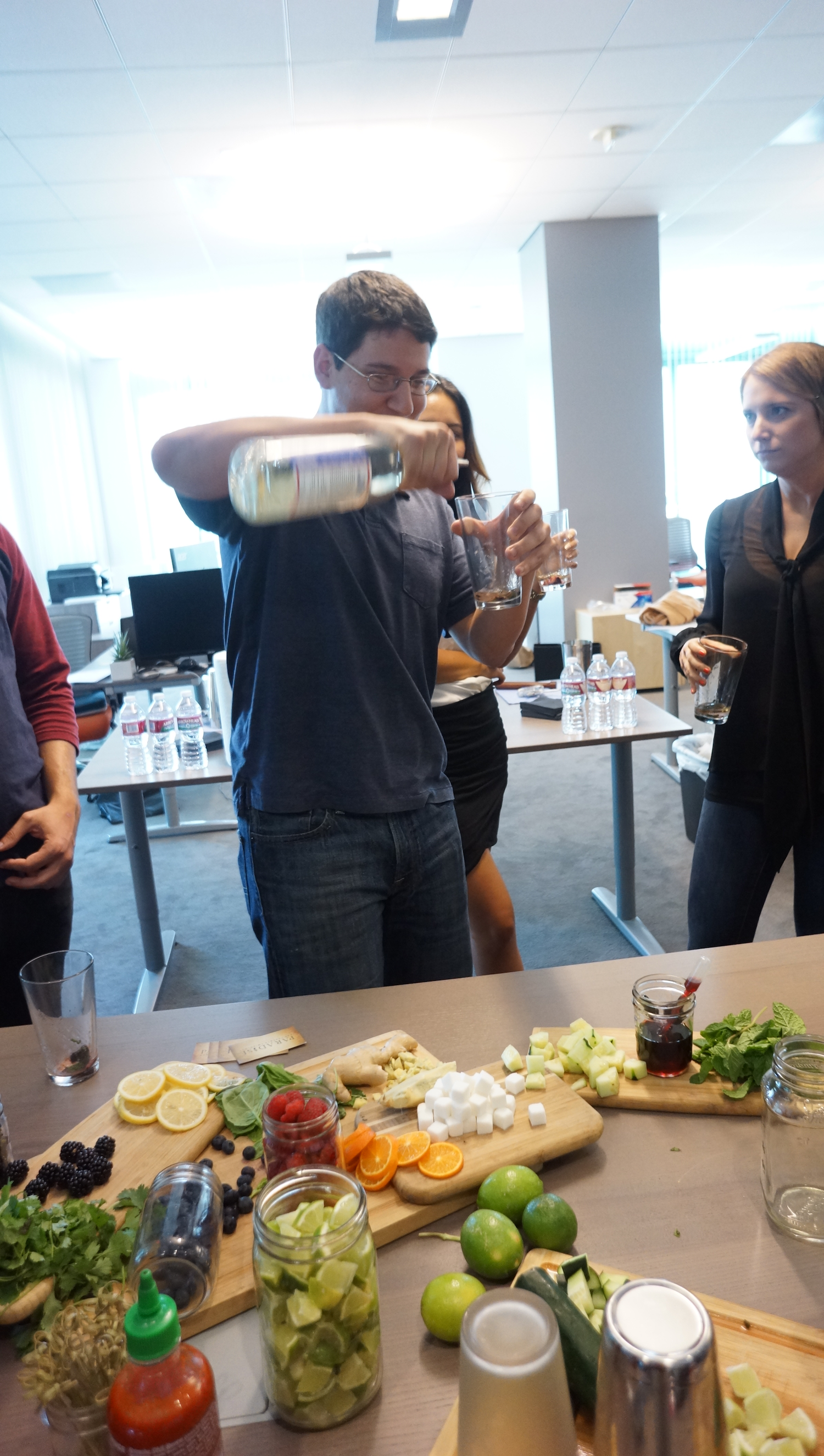
After being terminated, Mark and Patrick launched brokescholar.com / promocodewatch.com within 3 weeks of Mark's last day of working for us. Before their launch, Mark made sure to block both me and my wife (whom he knew well) on Facebook.
More details on Patrick M. Williams
We hired Patrick Melvin Williams on March 30, 2015, as our UI/UX Designer. Patrick also did some website development and front-end coding. Patrick brought with him experience as a designer at ProductionBeast, Booz & Company, Serge Media, and Mahalo.com. Patrick, having graduated from Full Sail University, didn't come with a traditional educational background in design, but made up for it with an innate talent for marketing and an eye for design. Patrick had a strong ability to incorporate business strategy into his designs to create complete, sensible designs that meet business goals.

As current and former employees will attest to, Patrick as our UI / UX Designer and Front-end Engineer struggled a bit with interpersonal relationships in the office. He often became visibly upset when questioned or challenged by engineers or other designers on our team. I spent significant time counseling him privately, some meetings going for two hours or more, trying to help him interface with team members on a more proactive, professional level, without taking things personally. As I do with all my employees, I invested in Patrick's development in his short tenure with us.
Patrick Williams is concealing his employment history with ZipfWorks
Patrick M. Williams (UX Designer) has a conspicuous lack of digital footprint. He has almost no presence on social media, not even on LinkedIn, which is very unusual for someone in the online industry. Even now, as a co-founder of BrokeScholar, Patrick cannot be found on LinkedIn:
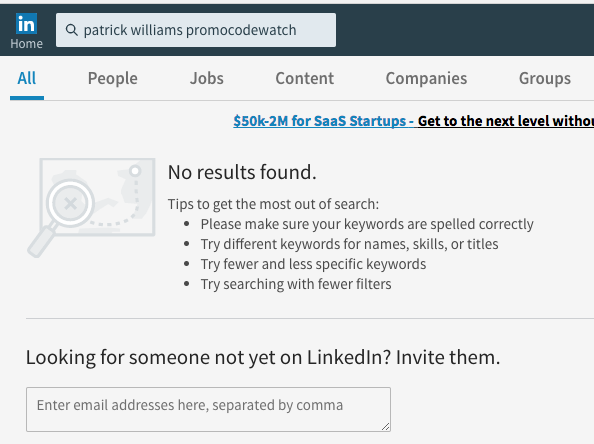
In 2017, it is highly unusual that a co-founder of a technology company would not list themselves on LinkedIn. Patrick MK Williams does not even appear as an employee on BrokeScholar / PromoCodeWatch's LinkedIn company profile. Back when I interviewed Patrick, I also found it odd that he left out large segments of his life and career from his resume in which he omitted his school background and his experience at Mahalo.
Team photos of Patrick M. Williams, UX/UI Designer
There's plenty of evidence that Patrick was not only an employee of ZipfWorks, he actively attended team-building events, and was often photographed in our office.
Here's a photo of Patrick and a few other team members at a Korean BBQ team-building event in 2015:

Here's another snapshot of Patrick, working in the ZipfWorks office in Santa Monica, probably doing some design work for our fashion shopping app, StyleSpotter:
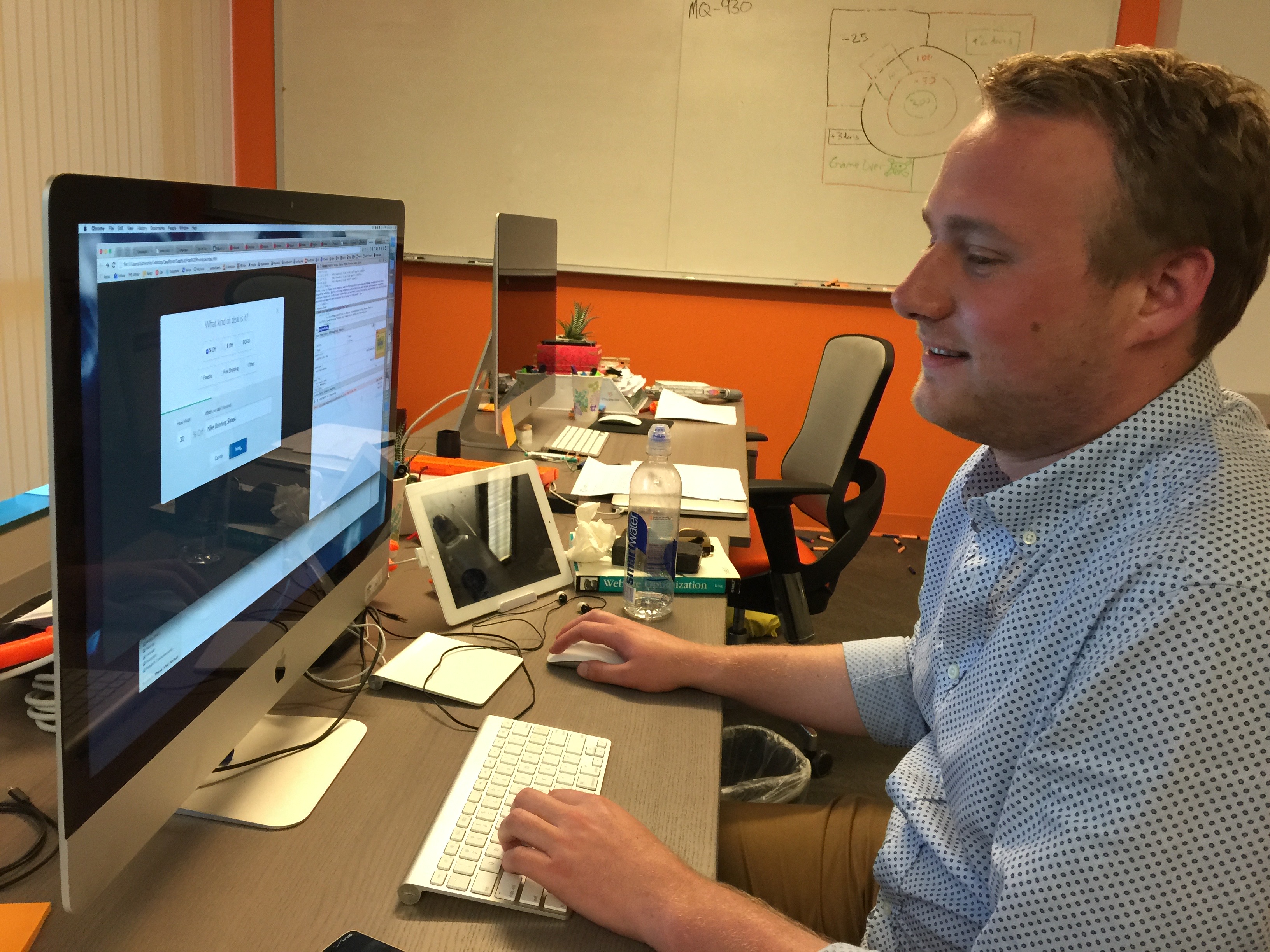
Here's a pic of Patrick Williams at the ZipfWorks office, sitting with our Marketing Director Jason Feller.
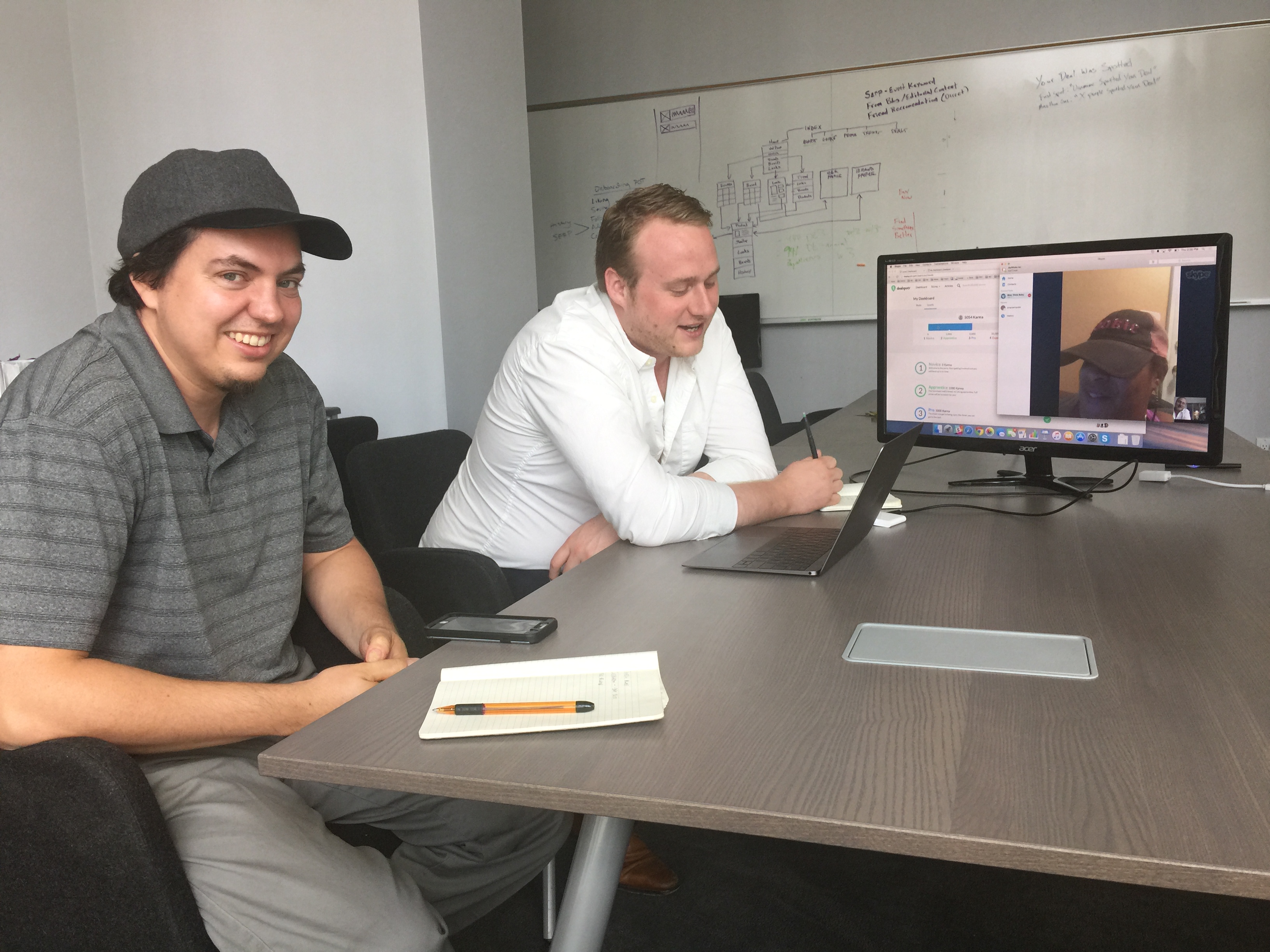
Patrick Williams knew how to have fun in the office.
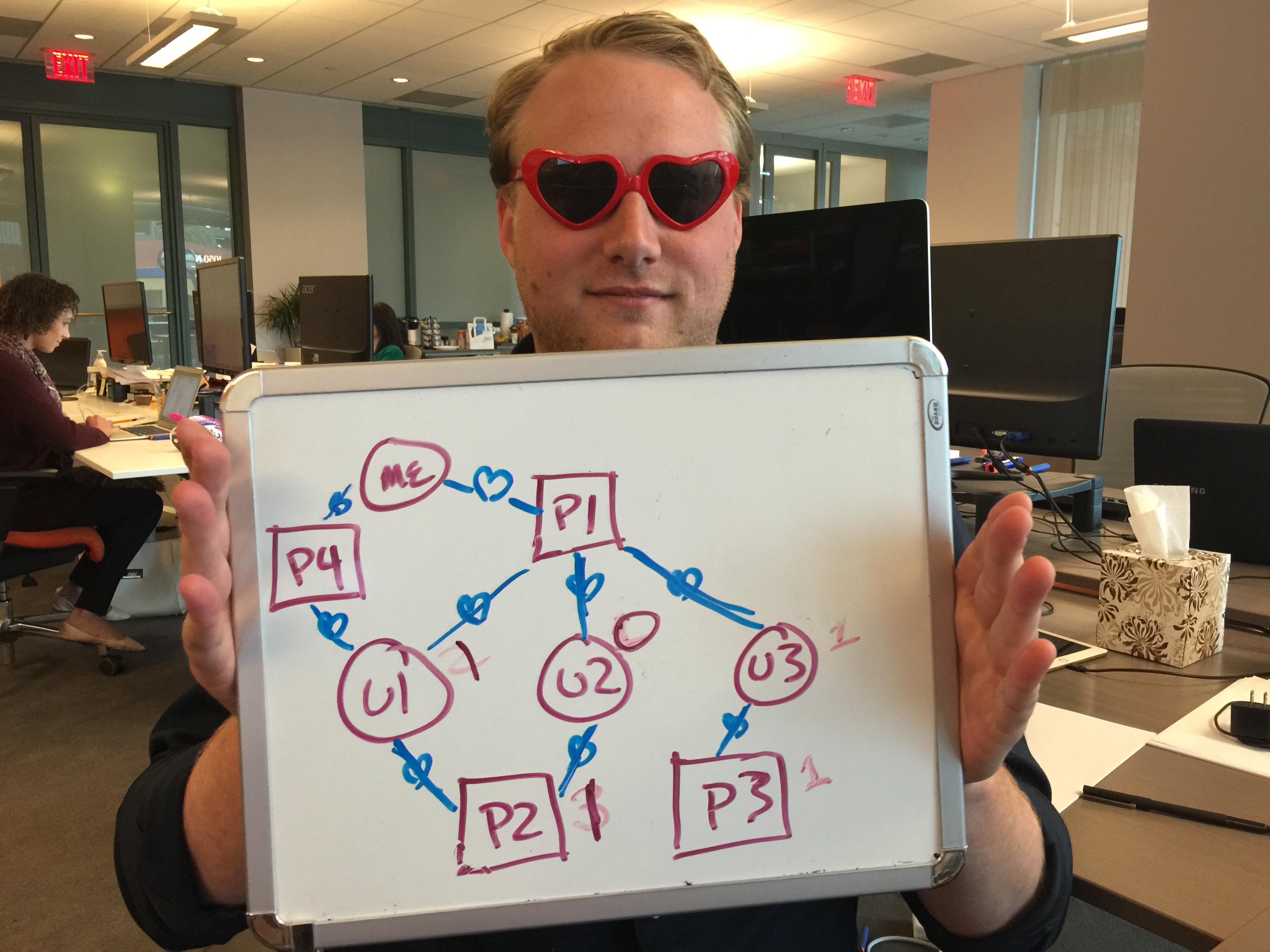
As our UI / UX Designer, Patrick M. Williams often conducted user research sessions to help us improve our websites and apps.
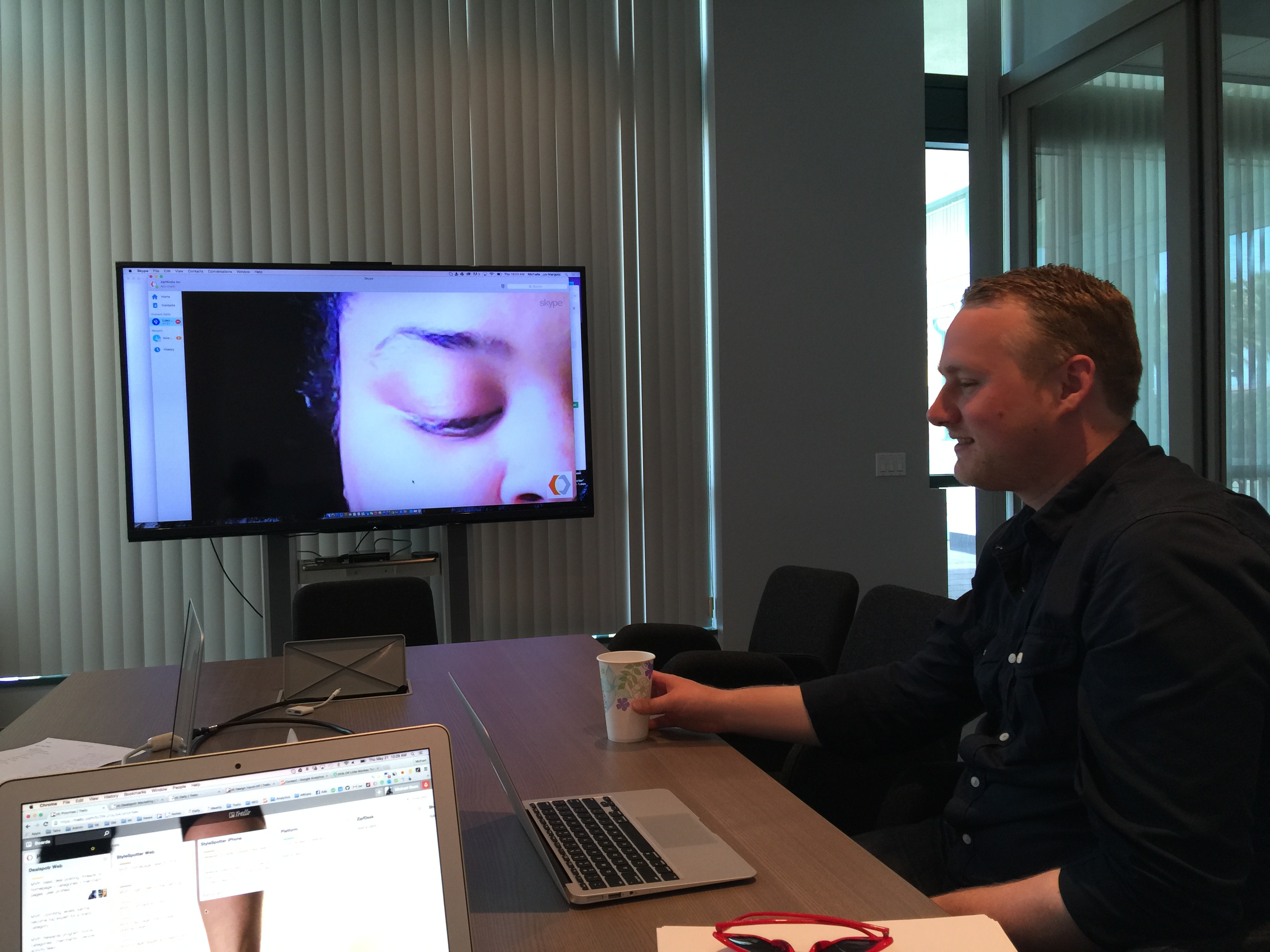
Here's a pic of Patrick messing around in the office.
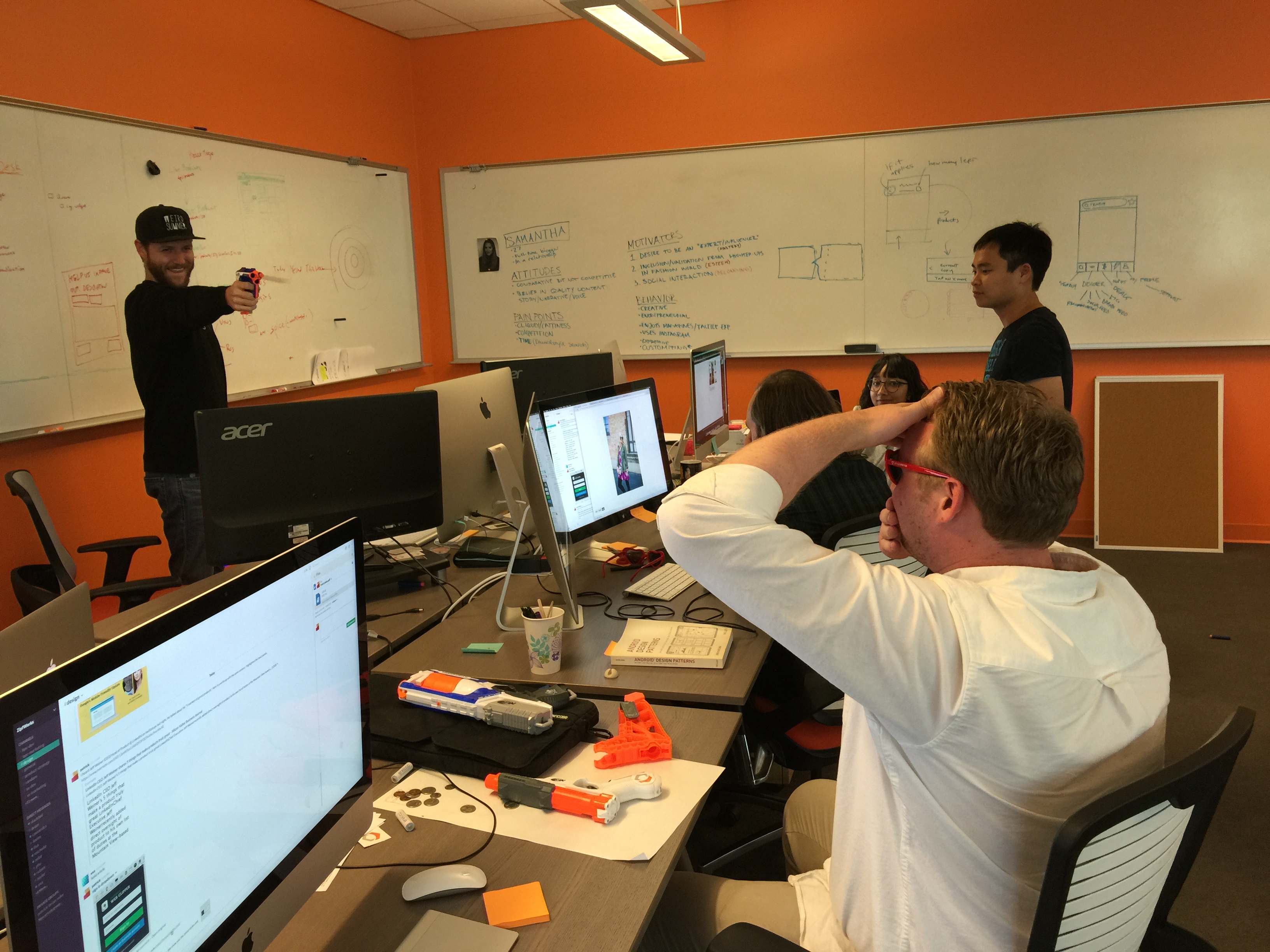
There is no doubt that Patrick MK Williams worked for ZipfWorks during 2015, no matter how much he tries to conceal this fact in his online profile.
Where we're headed
For us, it's rather simple. A coupon website or app exists for one reason: to provide accurate, working coupons for shoppers, and to try to do it better than the competition. A site that posts fake coupons, masks them as real ones, and then invests in unethical marketing schemes to rank prominently in search engines, is a simple fraud, nothing more.
As for us, we're continuing to keep our heads down, focusing on providing our industry's best content. We've already largely succeeded in this regard. By building a large community of deal enthusiasts, and by creating a compelling incentive program based on gamification, we have developed, based on studies we've conducted, the industry's most complete and most accurate database of coupon codes.
We continue to execute our strategy of growing our business through community development, influencer partnerships, content marketing, and PR.
Will continue to pursue our legal claims in court against Mark Mazza, Patrick Williams, and BrokeScholar to stop them from competing unfairly in the marketplace. We believe their website was created through unjust means, and is harmful to consumers, and should be shut down. We will also seek to recover lost revenues lost to BrokeScholar / PromoCodeWatch going back to 2015 as well as damages for Mark and Patrick's unjust enrichment from their use of our trade secrets and proprietary information.
If you have any questions about this ongoing litigation, or any of the information provided in this article, feel free to contact us at zipfworks.com.


